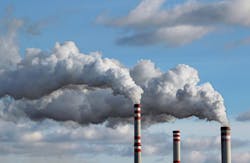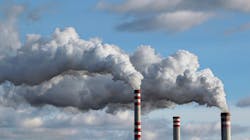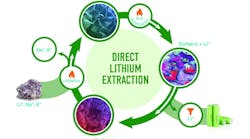Reducing carbon emissions across all sectors of the economy is in the best interest of the United States, President Barack Obama stated in his address at Georgetown University in Washington last Tuesday. He declared that his administration will set standards that will affect a huge number of projects, including power plants and TransCanada's proposed Keystone XL pipeline.
In his speech about measures to be taken to address climate change, Obama said that a permit for the pipeline running from Canada to Texas will be granted only if its construction and operation does not worsen carbon pollution.
"Allowing the Keystone pipeline to be built requires a finding that doing so would be in our nation's interests," Obama said. "Our national interest would be served only if this project does not significantly exacerbate the problem of carbon pollution."
The $7 billion pipeline has been a controversial issue for months. While Republicans have been calling for the project's approval, claiming that it would create valuable jobs and help the economy, environmentalists have demanded that the Obama administration block the project over pollution concerns. Obama's statement seemed to offer reassurance to green activists, but could also be interpreted as a potential green light for the pipeline if the carbon standard is met. The State Department is expected to announce its decision on Keystone XL later this year.
RELATED: Keystone XL draft assessment seen as positive sign for oil industry
The president suggested that the State Department was currently evaluating the potential environmental impact of the pipeline. Earlier this year, the department released a draft report that stated the effect of Keystone XL on carbon emissions would be minimal because Canadian oil sands would be developed with or without the project approval. The report also recognized the fact that other means of transport for shipping the oil, such as rail, trucks and barges, also posed a risk to the environment. For instance, the State Department estimated that moving the oil by rail to existing pipelines would result in an eight percent higher amount of greenhouse gases than if it is transported via Keystone XL.
On a broader scale, Obama called for putting new restrictions on existing and new power plants that could cut carbon emissions and promised to support the development of a new generation of clean energy sources. He also pledged to lead a renewed global effort to stop global warming. Officials from the Obama administration commented that the plan would enable the United States to meet the goal it set in 2009 to reduce greenhouse gas emissions 17 percent below 2005 levels by 2020.
As far as new power plants go, new rules proposed by the EPA have been put on hold and there has been no indication as to whether they will be brought to light again. Meanwhile, Obama intends to put new mandates on the agency, setting a deadline of September 20 for new power plants and demanding a proposal for existing plants to be submitted by June 2014.



